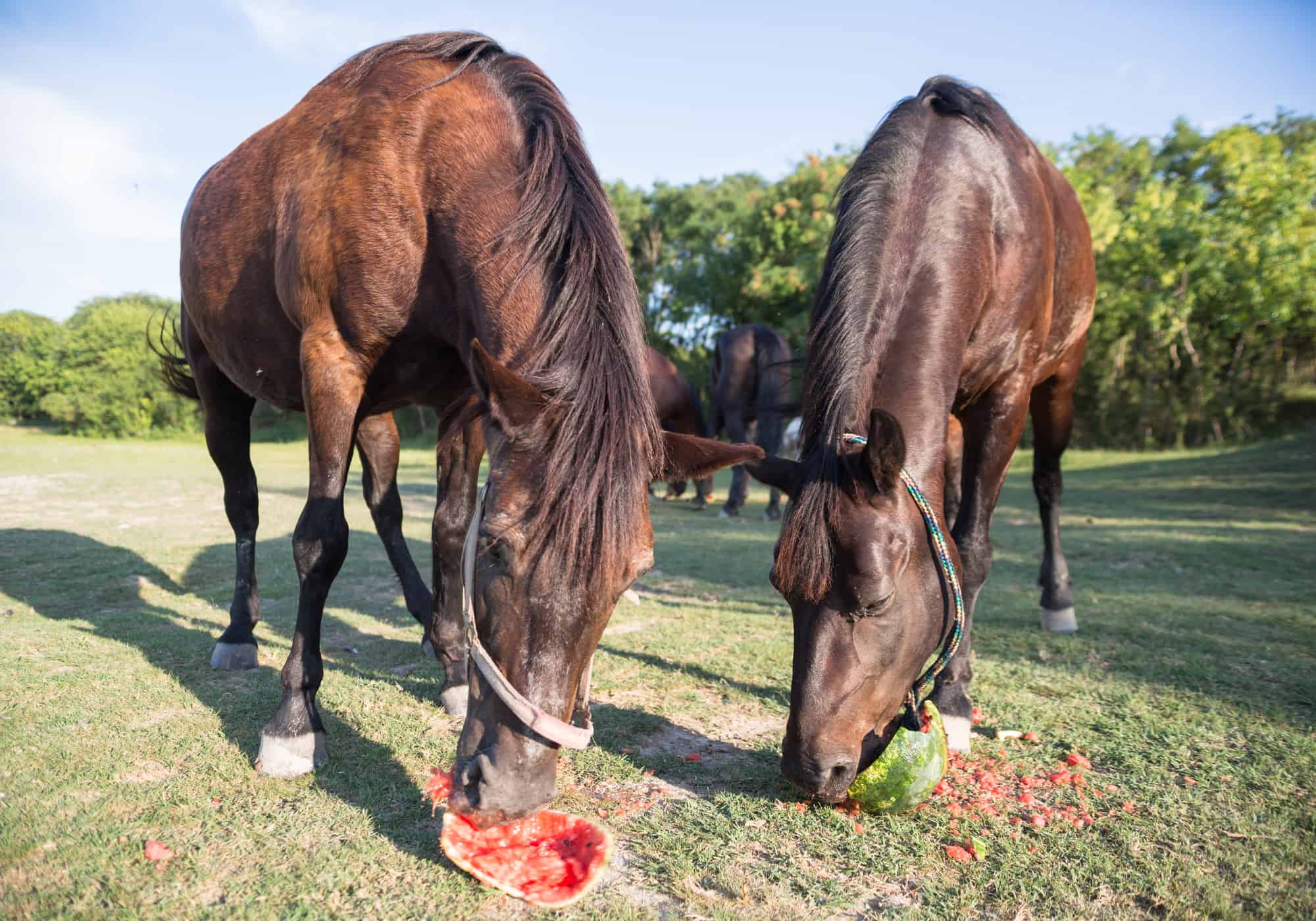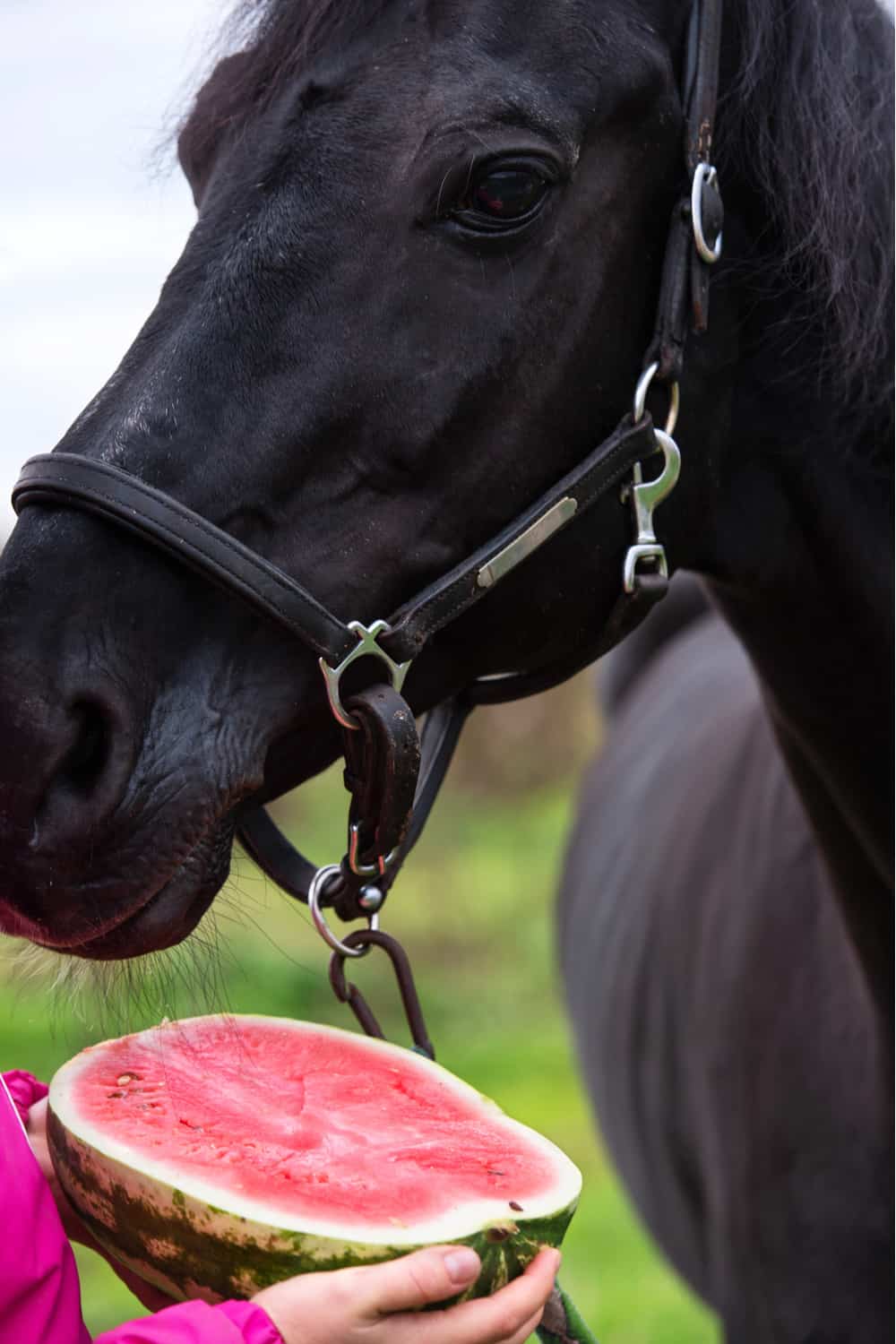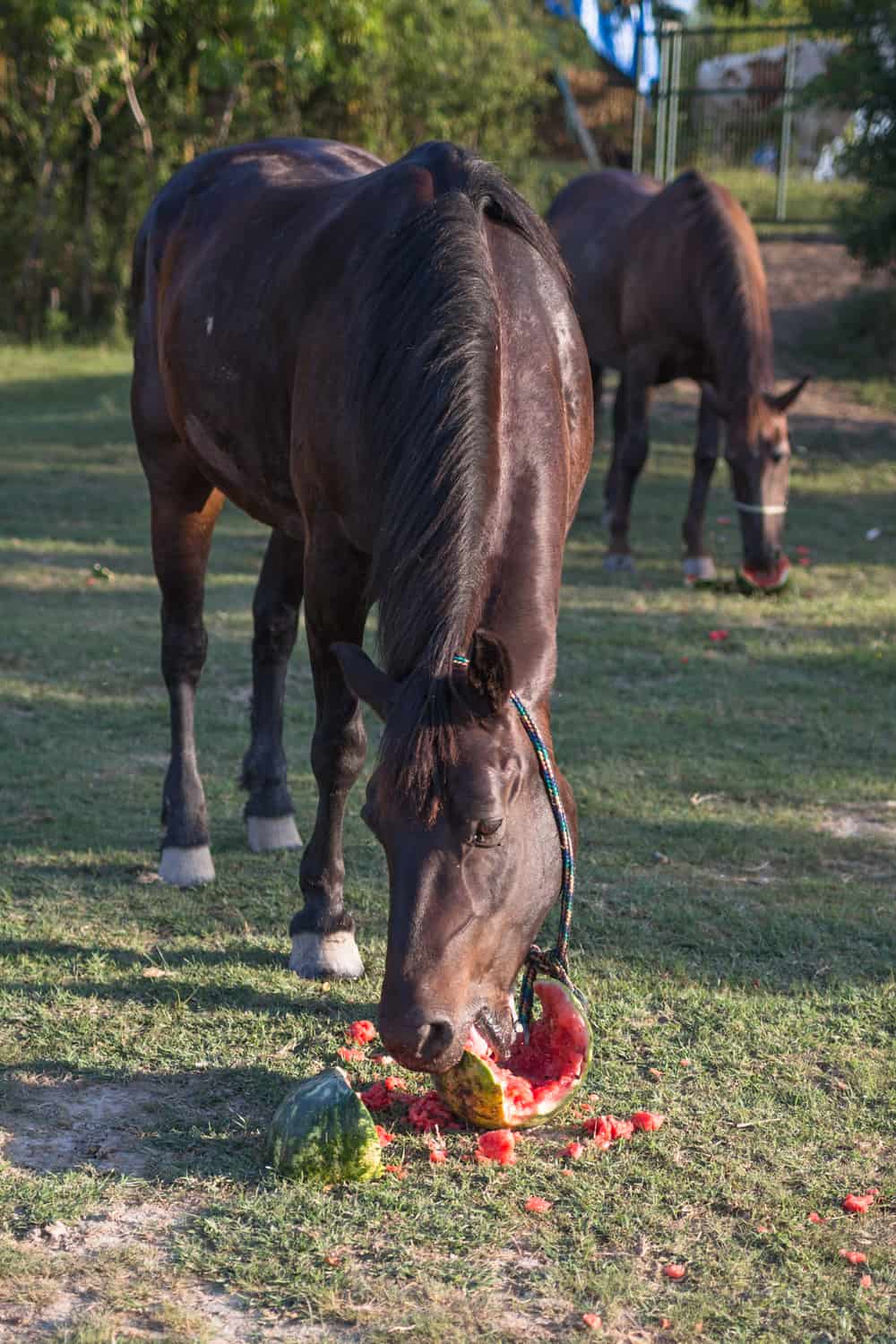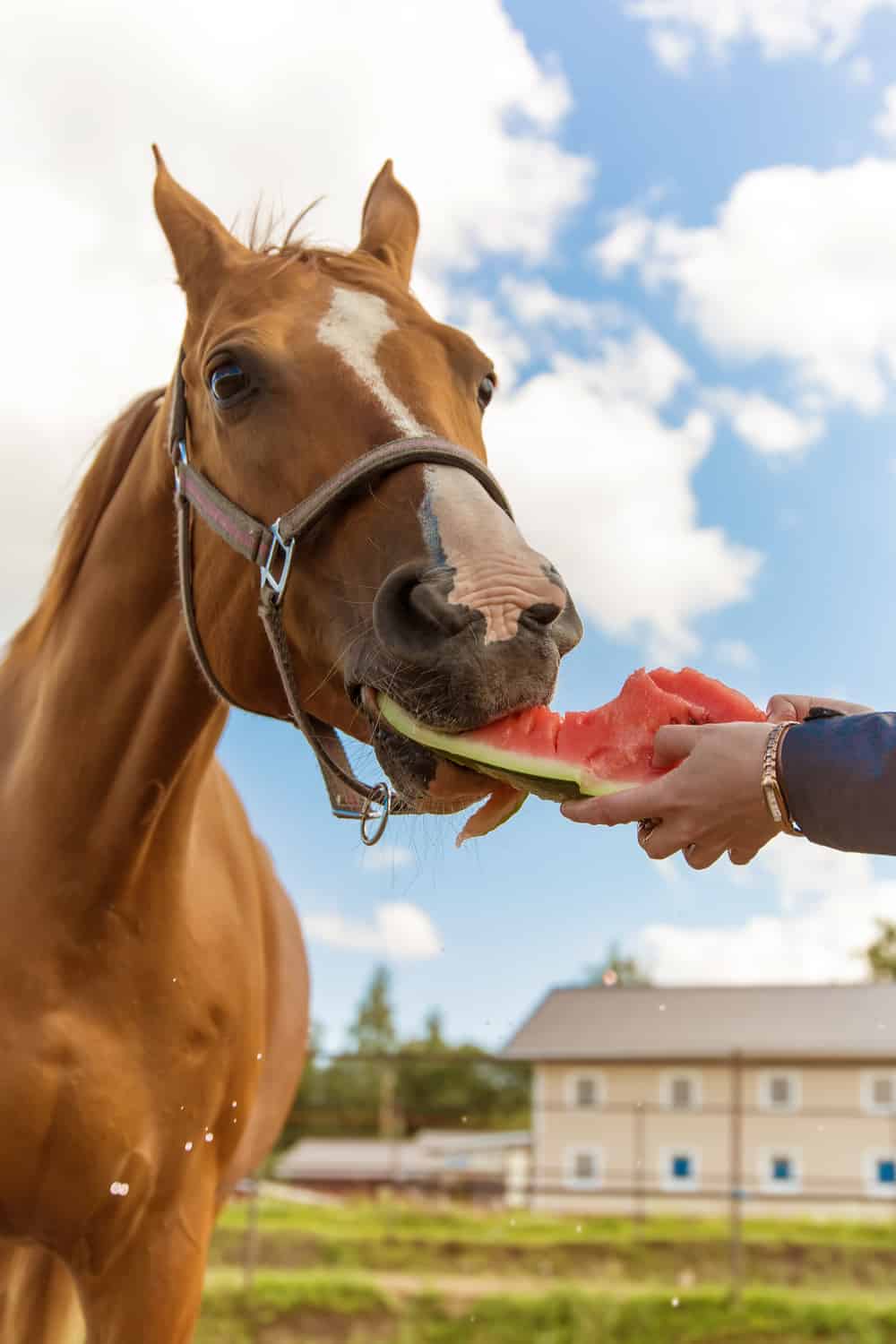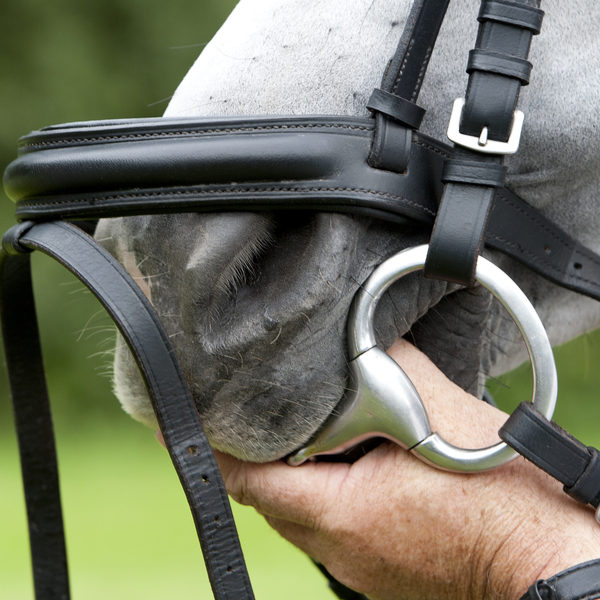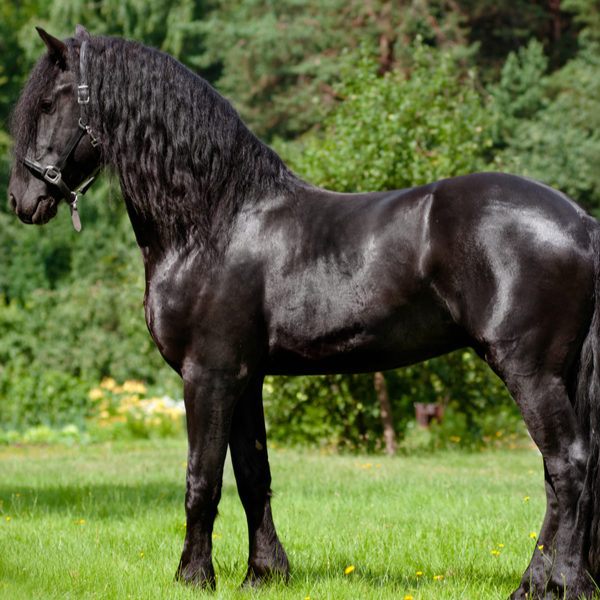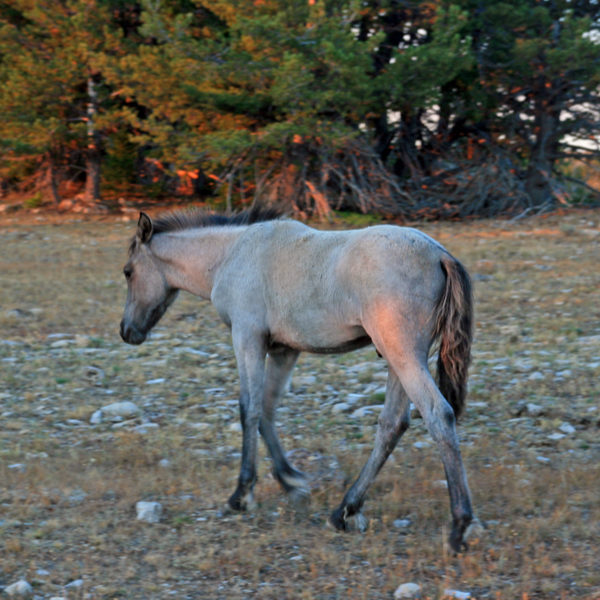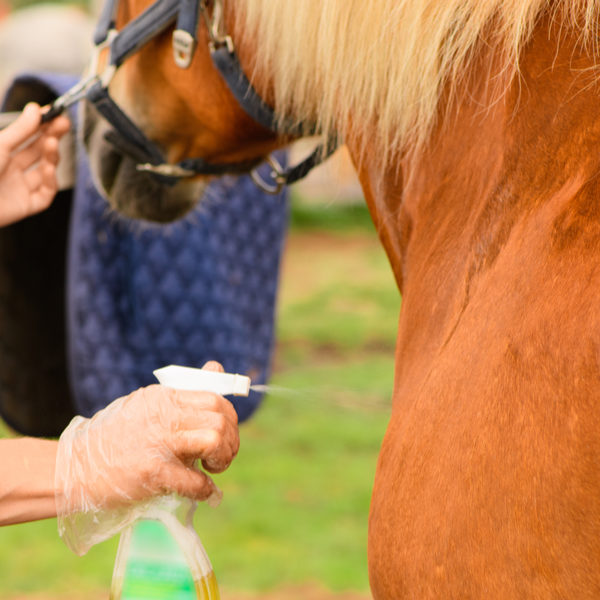Your horse probably adores treats, but you might find it challenging to discover new healthy snacks. Occasional watermelon portions can do the job, and your horse will undoubtedly love it. When given in moderation and safely, most equines can consume watermelon without any harmful consequences.
Unfortunately, this mouth-watering treat may not be advisable for horses with dental or dietary issues. This article will guide you through the process of feeding watermelon to your equine friend. Besides the nutrients, we’ll also discuss how this super fruit can fit into your horse’s diet.
Is Watermelon Healthy For Horses?
Apart from being refreshing and delicious, watermelon is healthy for most horses, too. Like in humans, water is vital for horses to survive and grow unimpededly. Food high in water contents also gives horses strength and keeps them fit.
So, you’re probably guessing, and you’re right; watermelon comprises almost 91% water. The high water content doesn’t mean watermelons have no other health benefits besides thirst-quenching. Let’s explore the multiple perks of this appetizing fruit.
Watermelon Nutrients
In addition to being cholesterol-free, fat-free, and containing 30 calories per 100g, watermelons are rich in vitamins and minerals. Below, we have listed a myriad of nutrients found in watermelons with multiple benefits for your horse:
- Vitamin C. This antioxidant is essential for boosting the immune system of horses. It can also help in repairing tissue and cell damages and eventually lead to healthy skin.
- Potassium. This mineral is crucial for controlling blood pressure and keeping the heart robust. Potassium further strengthens the muscles and nerves of the equines.
- Vitamin B6. The B6 vitamin helps turn fats and carbohydrates into usable energy.
- Vitamin A. This vitamin is vital for your horse’s eyesight. It also boosts immunity and bone health, thus alleviating the signs of aging.
- Fiber. Though the flesh has a low fiber content (0.4 grams per 100g), the rind abounds and contains about 17% fiber. This carbohydrate provides horses with the bulk necessary to keep their guts full and healthy.
- Calcium. Besides strengthening bones, hooves, and teeth, calcium plays a critical role in enzyme regulation, muscle contraction, and blood clotting.
- Iron. This micro mineral carries oxygen throughout the body and improves the immune system. Plus, it can aid the digestive process and speed up energy production.
- Magnesium. Beyond the anti-inflammatory perks, magnesium is responsible for proper nerve and muscle function. Moreover, this mineral lowers insulin resistance and reduces depression symptoms in equines.
- Phosphorus. Phosphorus is critical for bone growth and skeletal and teeth health. It is also in charge of energy transfer and storage in the body.
- Amino acids. Watermelon rind contains citrulline, an amino acid that relaxes blood vessels and increases blood flow. Apart from lowering blood pressure, citrulline promotes vascular health and combats fatigue. Experts also believe it helps horses fight cancer and heal wounds faster.
- Lycopene. Another amino acid that can help your horse burn belly fat and build lean muscles.
How Much Watermelon Should I Give My Horse?
A healthy horse has no reason to avoid eating both the flesh of the watermelon and its seeds. Still, the best option would be to give this watery fruit to equines in moderation. If you overfeed the horse, that might lead to digestive issues for the animal, such as colic (gastric problem).
Moreover, consider using watermelon as an occasional treat or reward only, instead of a full meal. This way, you can curb the quantity you feed. Giving excessive amounts of watermelon might dissuade your horse from consuming the regular food intake.
Overall, a balanced daily meal is an ultimate recipe for success. A few small chunks a day should be the ideal portion for your horse besides the usual forage like grass and hay. You don’t want to give rise to stomach upsets, such as ulcers, that might be costly and take a long time to treat.
Can Horses Eat The Seeds And Rind?
In short, your horse can eat both the seeds and the rind of watermelons when in limited amounts. Speaking of the former, owners should not exaggerate. After all, if you give your horse only a few pieces of watermelon, the number of consumed pips won’t cause any problems.
Too many seeds can be harmful. The negative effect comes down to the tiny quantity of cyanide released when horses digest the black parts. Hence, you may even consider feeding watermelon treats that don’t contain the seeds.
More so, some horses tend to prefer the rind over the pink pulp of the fruit. Watermelon rind is a rich source of fiber and potassium, as explained above. One thing to bear in mind is that the rind is crunchier. Thus, cutting fruit into small chunks to avoid the risk of choking would be an ideal approach.
Owners who choose to give watermelon rind to horses must wash it first to remove any traces of toxins. The outer layer often comes in touch with pesticides that may deteriorate your horse’s health. Consider washing the fruit in a saltwater mixture to rinse off germs that may even transfer to the sweet flesh.
Can Dental Issues Create Problems?
For horses suffering from specific dental conditions, watermelon treats can do more harm than good. The most significant risk you’re running is to choke your horse with poor dental health. Hence, chop the watermelon into tiny pieces before feeding your equine that has difficulty chewing food.
If your horse is older, then it’s best to avoid giving watermelon rind altogether. Due to deteriorated teeth and gums health, aged horses have limited chewing abilities. However, they will still enjoy eating the flesh of full-grown watermelons.
What Horses Should Never Eat Watermelon?
Horses prone to, or even worse, suffering from HYPP (hyperkalemic periodic paralysis) must avoid watermelon by all means. This condition gets triggered by the potassium contained in watermelons. Potential consequences that may often be life-threatening include debilitating episodes.
More so, both young and old horses that are insulin-resistant should steer clear from watermelon intake. Since this fruit contains about 6.2 grams of sugar per 100g, it may worsen your horse’s diabetes or EMS.
Many owners will pose the question of watermelon-flavored foods. Well, the digestive system of horses cannot handle the processed products humans consume. So, never attempt to give your equines mass-produced watermelon treats, and keep all meals fresh and homemade.
Finally, we will touch upon the topic of senior horses and what measures you should take. Overall, aged equine with well-preserved teeth that don’t suffer from HYPP of diabetes can eat watermelon in moderation. However, always pay attention to your senior horse’s reactions after the first portion.
Though watermelon won’t pose any dangers for most horses, it shouldn’t be a staple in their diet. Fruit is too sugary for daily consumption, so serve it a few times per week only.
Watermelon Treat Ideas
Finding the right way to feed your horse watermelon isn’t always straightforward. You may need to alter your ways once in a while to keep your equine animal satisfied and well-fed. Here are a few tips on how to combine watermelon with other foods and incorporate it into the feeding schedule.
Watermelon Chunks
The easiest recipe involves cutting up watermelon and giving it to your horse in moderation. Most horses love bite-sized chunks, whereas others enjoy mixing them with other fruits and veggies, like apples and carrots. Serve these healthy snacks at room temperature or chilled.
Chopped Watermelon
Frozen watermelon in various ways is an outstanding idea. The fastest method includes freezing chopped pieces and serving them on hot days. What you must remember is to remove the rind as it is hard to chew. Though horses adore this long-lasting treat, never consider it a substitute for freshwater.
Frozen Blocks
Another treat you can easily make consists of frozen blocks. All you need to do is pour some water into a regular bucket and add several watermelon pieces to it before freezing. Once prepared, you can let the horse lick the blocks and eat the fruits as they unfreeze.
Bran Mash Mixtures
Mixing up bran mash with watermelon chunks is another meal recipe for horses. Instead of repeating the same wet mash of bran and hot water every day, surprise your horse by giving it some watermelon flavor.
Final Thoughts
Treating your beloved equine friend with watermelon is a fantastic idea. Besides being healthy and refreshing in the summer months, this delicious fruit is safe for most horses. Hence, there’s no need to feel guilty or overly cautious when allowing your horse to eat watermelon. Overall, it’s a win-win scenario for owners and their riding companions.
Do you have any experience feeding an equine watermelon? Our loyal readers would love to hear your insight on the topic. Please, share it in the comments below and come back to us for more animal-friendly content.
